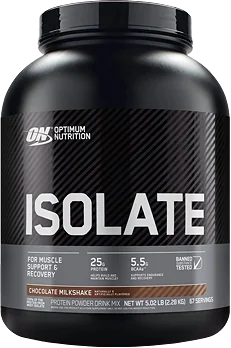Knowledge BaseYou're Questions Answered
BACK
Are protein shakes bad for acne?
The relationship between protein shakes and acne is a subject of ongoing research, and the impact can vary depending on the type of protein used and individual skin sensitivity. Here’s what current research suggests about protein shakes and their potential effects on acne:
Potential Causes of Acne from Protein Shakes
- Dairy Content: Whey protein, which is derived from milk, contains hormones and bioactive molecules that can stimulate oil production in the skin. This increase in oil can potentially lead to clogged pores and acne outbreaks in some individuals1.
- Additives and Sugars: Some protein shakes contain added sugars and artificial additives that can contribute to inflammation and acne. It is important to choose shakes with minimal added ingredients to reduce this risk2.
Choosing Protein Shakes for Acne-Prone Skin
- Plant-Based Proteins: If you are concerned about acne, consider using plant-based protein powders such as pea, hemp, or rice protein. These are less likely to affect skin health adversely and are suitable alternatives for those sensitive to dairy3.
- Low-Glycemic Ingredients: Look for protein shakes that do not contain high glycemic additives like maltodextrin, which can spike blood sugar levels and may influence acne development4.
It is also advisable to maintain a balanced diet and proper skincare routine while using protein shakes. If you notice an increase in acne after starting a new protein supplement, it may be helpful to consult with a dermatologist or consider switching to a different protein source. As individual responses can vary, listening to your body and monitoring how it reacts to different types of protein is crucial.
Was this answer helpful? Let us know!
Like
References:
- Melnik, B. C. (2012). Dietary intervention in acne: Attenuation of increased mTORC1 signaling promoted by Western diet. Dermato-Endocrinology, 4(1), 20-32.
- Bowe, W. P., & Logan, A. C. (2010). Acne vulgaris, probiotics and the gut-brain-skin axis: From anecdote to translational medicine. Beneficial Microbes, 1(2), 185-199.
- Grant, P., & Ramasamy, S. (2012). An update on plant derived anti-androgens. International Journal of Endocrinology and Metabolism, 10(2), 497-502.
- Smith, R. N., Mann, N. J., Braue, A., Mäkeläinen, H., & Varigos, G. A. (2007). The effect of a high-protein, low glycemic-load diet versus a conventional, high glycemic-load diet on biochemical parameters associated with acne vulgaris: A randomized, investigator-masked, controlled trial. The Journal of Dermatological Treatment, 18(4), 209-215.
Add to this Answer
Related Questions
Protein vs Protein

Disclosure
Your Answer
Do you have a suggestion to improve the answer? Please detail your suggestions and provide any references to information that may support your answer if available.
The content on this site has not been written, reviewed or endorsed by a medical professional. We assume no liability for the misuse of supplements and recommend you review the label of any product, as well as consulting with your health care professional.
We are a participant in the Amazon Services LLC Associates Program, an affiliate advertising program designed to provide a means for us to earn fees by linking to Amazon.com and affiliated sites.
We are a participant in the Amazon Services LLC Associates Program, an affiliate advertising program designed to provide a means for us to earn fees by linking to Amazon.com and affiliated sites.
© 2026 ProteinPowder.com


